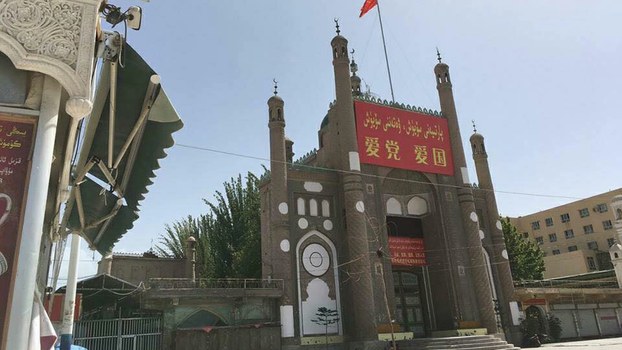BEIJING: A public toilet has been constructed on the site of a demolished mosque in Atush city in northwest China’s Xinjiang Uyghur Autonomous Region, according to media reports.
This, as observers believe, is a campaign to break the spirit of Uyghur Muslims.
The reports of the construction of the public toilet on the site of Tokul mosque in Atush’s Suntagh village come after RFA’s Uyghur Service came to know that the authorities razed two of three mosques in the area in carrying out instructions to destroy Muslim places of worship en masse, known as “Mosque Rectification.”
The Mosque Rectification drive, which is part of a series of policies under Chinese President Xi Jinping, precedes the mass incarceration of over 1.8 million Uyghurs and Muslim in a network of internment camps in the XUAR that started in April 2017.
According to a RFA report, it had conducted a telephone interview with a Uyghur neighborhood committee chief from Suntagh village in Atush, who said that Tokul mosque was demolished in 2018 and that a toilet had been built in its place by the Chinese.
The toilet has not been opened yet, but it’s built, according to him.
He added that with Suntagh located some three kilometers outside of central Atush, the area sees almost no tourists who would need access to a washroom.
He further said the toilet was likely built to cover up the ruins of the destroyed Tokul mosque adding that he has not seen the inside of the public toilet as it remains closed.
Tang dynasty China first saw Islam in the seventh century – over 1,000 years before the Qing dynasty settled what is now Xinjiang, the report said.
China has more than 22 million Muslims, including some 11 million Uyghurs now. It should be noted that mosques and religious sites in Xinjiang were damaged during the political upheaval of China’s 1966-76 Cultural Revolution.
Meanwhile, the Chinese authorities have been destroying Muslim cemeteries as well as other religious structures across the XUAR since 2016.
According to Agence France-Presse, as many as 45 cemeteries in the XUAR had been destroyed from 2014 until last October. The sites have been turned into parks or parking lots.
The Washington-based Uyghur Human Rights Project (UHRP), last year, published a report about this campaign, titled “Demolishing Faith: The Destruction and Desecration of Uyghurs Mosques and Shrines.”
According to the report, anywhere between 10,000 and 15,000 mosques and other religious sites in the region were destroyed between 2016 and 2019.
(With inputs from rfa.org)









Comment